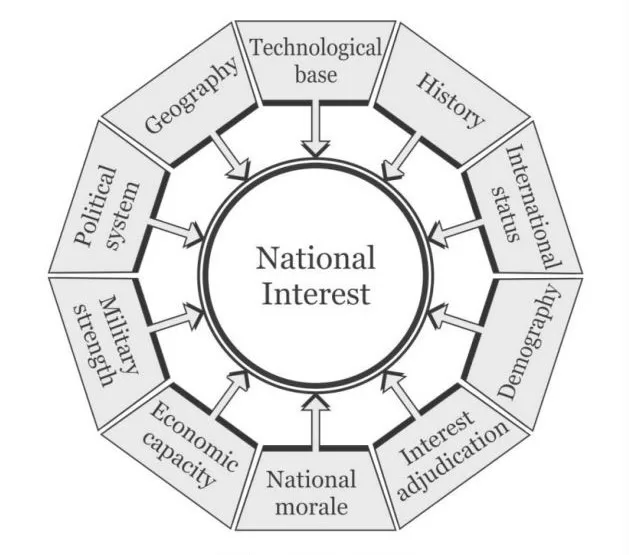The concept of National Interest is very important in terms of international relations because it provides the data and material upon which foreign policy of any nation is defined and evolved. The national interest is a sovereign state’s set goals and ambitions such as social development, health, education, economy, military industrial complex, national security, etc. that needs to be considered by the government as ultimate targets. Elaborating national interest, a bit further, it refers to the claims, objectives, goals, demands and interests which a nation always tries to preserve, protect, defend, and secure in relations with comity of nations.
Britain and the US with Five Eyes alliance has a common interest of dominating other nations together. Alliances are built for that purpose. Britain has captured major choke points in nations like Gibraltar and others like Falkland and many other island nations. US has bases all around the world. Russia seeks its main interest in the region, SCO Bricks and ECO with securing its border from NATO. National interest of a nation is directly proportional to the size and stature of that country. A country with huge resources, population and economic viability must stretch its interests because these ingredients dictate the country to stretch and flex the muscles.
The national interest may have multiple ingredients depending upon the nation’s contemporary governance and social status such as national security, defense, overall prosperity and social wellbeing. The successful foreign policy is the reflection of all above ingredients. While formulating foreign policy, all stakeholders, executing functions and statesmen are guided by their respective national interests. It is the purpose of foreign policy to conduct foreign relations to achieve national interest to the maximum extent.
The national interests of Pakistan may be defined and evolved based upon its existing contemporary challenges. The country has an obsolete governance system that is not functioning and hence the deliverance almost does not exist. Pakistan inherited governance problems since its creation due to multiple internal and external factors. These factors include wars with India, the demise of its founding father just one year after independence, shortage of funds, Cold War era bloc politics, delay in drafting the Constitution, inadequate governance machinery and political instability. The failures of all Pakistani governments to shape an effective good Governance model along with its key ingredients and absence of national interest definition as state policy, has resulted in the country in a directionless situation which is impacting negatively in terms of national security, economy, and foreign policy.
A few key areas that must be considered as the collective wisdom in terms of National Interest are:
Self-reliant nations can bargain well in terms of preserving national interests and foreign policy, specifically self-reliant in defense and military industrial complex. Pakistan must develop a mixed blend of economic model that covers sale of military hardware, tourism, agriculture, and regional connectivity projects for revenue generation. Pakistan has a strong military establishment and a solid defence-related infrastructure along with an effective nuclear deterrence, so we must leverage this aspect for immediate commercial gains.
Food security For Pakistan, food security is a matter of national security as well. So, Pakistan needs to address food insecurity in both rural and urban areas via multi-sectoral intervention that should improve production, processing, transport, storage, and marketing. It also needs to make markets more accessible for both the producers and the consumers.
We must develop local/rural based facilities and infrastructure to prevent urban growth. It includes basic life necessities, job opportunities along with basic health facilities.
Curb expansion of residential societies by required legislation. We have been observing the rapid spread of real estate businesses and uncontrolled residential societies.
The land and real estate groups buy agriculture land at cheap prices and the develop residential landmarks – this in fact boosts the squeezing of the agriculture farm lands creating a huge gap in terms of national self-sufficiency in food sector.
Encourage agriculture sector with planning and Research & Development. Food related agriculture can be improved by demonstrating at least three technologies e.g. utilizing drone technology, calibration of spraying equipment, digitalization of pest monitoring and surveillance data and remote sensing. At the same time, simultaneously applying international best practices to ensure safe and environmentally friendly management of locusts and other pests.
Encourage vertical farming in addition to modernizing agriculture sector, etc.
Pakistan is experiencing one of the worst impacts of climate change due to developed countries emitting greenhouse gases. It is good that Pakistan is raising this issue at the UN level, even then more emphasis needs to be put on by the Pakistan government in order to get a fruitful monetary outcome
Local Manufacturing Social compliance, quality, and security are the three key issues that arise when assessing the challenges of manufacturing in Pakistan. A lack of transparency is the biggest contributor to the social compliance challenge when sourcing from Pakistan. With a low number of labor inspectors to enforce safety rules and labor codes, the working conditions can often be difficult across small manufacturing workshops. Only factory audits conducted by international brands can enable some level of enforcement of safety and labor codes. Regardless, Pakistan must develop conditions to nourish local manufacturing since this could be the backbone for the national security and in terms of contributing to economy.
Evolve Maritime Blue Navy Doctrine The naval doctrine must be covering the Arabian Sea, the Persian Gulf, the Red Sea, and the Mediterranean Sea. The dominion of interest for Pakistan is supposed to be beyond its extended Exclusive Economic Zone. This dominion of interest will further stretch when Pakistan-China joint naval forces will collaborate in the coming future for CPEC security matters covering a considerable part of the Indian Ocean. For example, Pakistan maintains very close ties with Sri Lanka, it being imperative to keep Sri Lankan on her side while dealing with the Indian hegemony in Indian Ocean. Since India has negative ambitions towards CPEC and our EEZ, it is imperative for Pakistan try and encircle India from every side possible in IOR with Chinese support. In this regard, in addition to Gwadar Port, Pakistan should start considering Jewani as an exclusive joint naval port with Chinese navy presence hence controlling the choke points nearby and controlling the rouge Indian and Irani elements.
Pakistan maintains close military ties with all Gulf States (GCC) like Saudi Arabia, UAE, Oman, Qatar and Bahrain. The energy needs for Pakistan are strongly associated with these States via the Strait of Hormuz along with other economic stakes. Similarly, the holy cities of Mecca and Madinah are located near the shores of the Red Sea adjacent to Bab El Mandab. For Pakistan, the security of these two holy cities is the prime factor that dictates deeper defence ties with Saudi Arabia with a special emphasis on military presence on-ground if such a time were to come. Since this Red Sea area of Saudi Arabia is open to the Gulf of Aqaba which also has an Israeli Port Elat next to it, it becomes strategically important for both Pakistan and Saudi Arabia to keep in mind the previous Arab-Israel conflicts. Pakistan must watch this small Gulf to counter any emerging challenge resulting from Indo-Israel alliance which is certainly not in favor of Pakistan. Even the dominion of interest for Pakistan stretches up to the Mediterranean Sea for conducting naval exercises with the Turkish Navy and other regional countries.
Develop Blue economy In Pakistan’s 290,000 Sq. Km area of maritime influence, sea food is a precious resource where our fish production in the marine sector, extending up to 35 nautical miles from the coast, is nearly 70 percent while the remaining 30 percent is obtained from inland sector. There is no reliable data on the quantum of fish resource beyond 35 nautical miles limit in the EEZ which is routinely transgressed by fishing trawlers from other countries. Pakistan is losing precious economic opportunities due to the absence of reliable fishery data across its EEZ and extended shelf. The trespassers who are equipped with latest technology for fish processing are taking huge benefit because of to this capability gap.
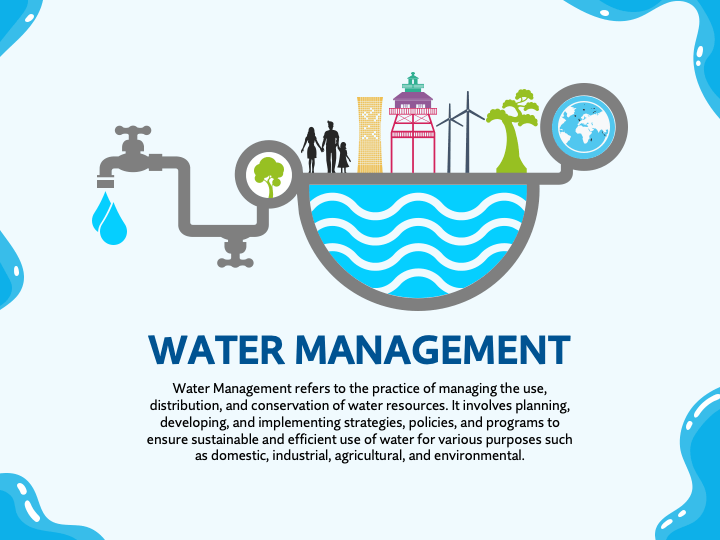
Water security Water security is the lifeline for Pakistan due to all rivers coming from Indian occupied territories. Pakistan is facing a water crisis with an ever growing population and limited water resources. The country is estimated to have a water deficit of up to 40%. This has led to a lack of access to water for drinking and irrigation resulting in food insecurity. The key way forward is mentioned below:
Integrating & investing in water management/Infrastructure The government needs to develop a comprehensive water management strategy and policy. This should involve the stakeholders in water management, including government departments, local authorities, and the private sector. The strategy should include regulations and guidelines for water resource management, as well as measures to promote public-private partnerships in water management. To ensure an adequate water supply, the government needs to invest in water storage and distribution infrastructure. This should include the construction of dams, reservoirs, canals, and other water management structures. In addition, existing infrastructure needs to be maintained and upgraded to ensure efficient operation.
Improving water efficiency & Water preservation techniques To reduce water wastage, the government needs to promote efficient water use. This should include the introduction of water meters and other water-saving devices, as well as public awareness campaigns to promote water conservation. To reduce water wastage, the government needs to promote the use of water-saving technologies, such as drip irrigation and water harvesting systems.
Recycle/Reuse & Improve water Quality To reduce the demand for fresh water, the government needs to promote the reuse and recycling of wastewater. This should include the treatment of wastewater and its use for irrigation and other non-potable purposes. To reduce pollution, the government needs to implement regulations and standards to protect and improve water quality. This should include the monitoring of surface and groundwater, as well as the enforcement of penalties for pollution.
The Government of Pakistan has taken numerous steps to ensure the water security of the country. The foremost action taken was the establishment of the Indus River System Authority (IRSA) in 1992. This agency is mandated to regulate and manage the distribution of the Indus River’s waters between the provinces of Pakistan. In addition, IRSA also allocates the water resources of the three western rivers which include the Indus, Jhelum and Chenab Rivers. In addition to this, the government has also launched the ‘National Water Policy Framework’ in 2017. This policy seeks to improve the management of water resources in the country. It aims to ensure the fair distribution of water and promote conservation and efficient use of the resources. The government has also taken various initiatives to reduce water wastage, this includes the installation of water metering systems in various cities, the promotion of rainwater harvesting, and repairing of the numerous leakages in the water supply networks. The government has also taken initiatives to improve the irrigation system in the country. This includes the launch of the ‘National Water Efficiency and Conservation Program’ which aims to reduce water losses in irrigation systems. It also includes the introduction of modern technologies such as drip irrigation and sprinkler systems. Pakistan will have to revolutionize its water supply systems and will have to sensitize its population regarding the level of water scarcity it faces. The country needs drastic measures to deal with its water security issues. Pakistan needs to harness better technologies and newer sources to cater to its water needs. The effort for water security needs to be collaborated, government and public working hand in glove. Water is the currency of the future, conserving it should be a top priority.
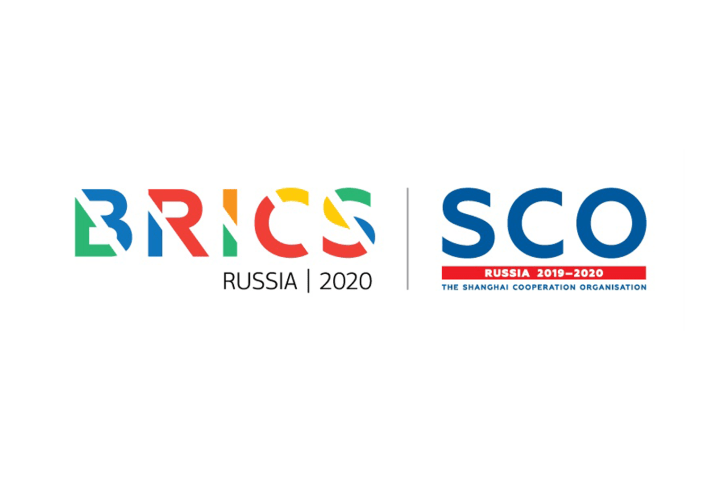
Pole politics, diaspora vs SCO/BRICS Pakistan is in a challenging position when it comes to choosing between poles. From the date of its creation, Pakistan preferred to align with the Western bloc hence all commercial and defence related interests are strongly pegged with Western countries (5 Eye Nations). As the result of this bond, millions of Pakistanis are residing in the western countries as diaspora. Pakistan’s major trade is pegged with western countries and Pakistan is also enjoying GSP (+) status. On the other hand, due to emergence of SCO and BRICS being in the region, Pakistan is tilted towards SCO and BRICS bloc. The strategic interests of 5 Eye Nations and NATO may not seem to be aligned with sovereignty of Pakistan. The western strategic interest is aligned with India and focused on containment of China. Pakistan’s foreign policy is always influenced by western oriented thinking with strong interaction with NATO. Many historical examples can be given like the Soviet intervention in Afghanistan but the incident after 9/11 and consequent events compelled Pakistan to rethink its global engagement as far as dealing with the big powers is concerned. The opportunity came through the Gwadar Port and CPEC that opened the doors for another power axis that is China and Russia. Moreover, Pakistan became a full SCO member recently giving a clear indication to the western bloc that Islamabad is responding to a strategic paradigm shift due to consequence of the war on terror and unilateral expansionism. This club has been the potential center for regional geopolitics as well as economic wellbeing under OBOR where Pakistan has the key status due to its flagship, the CPEC project. This bloc has huge potential to extend CPEC scope into Central Asian States, the Caucasus and deep into Russia and if Iran is added, it could involve the Caspian potential. The challenge is to benefit from such a power bloc into our economic wellbeing and geo-strategic gains for example like the Kashmir issue.
The challenge here is how to maintain fair relations with NATO countries, especially the United States – this enormous challenge requires an aggressive foreign policy and a very well-motivated Foreign Office staff. The successful caliber in foreign policy terms is to keep relations with both blocs but having a predominant tilt towards the region. NATO and western countries have a lesser economic stake in Pakistan rather than expansionism while on the other hand, China is there with its full economic agenda. The best practice will be to use the pros and cons of both rival blocs and use them in the best interests of Pakistan. Also keep in mind that fair practices and stand on principles will be the ultimate strength in the diplomacy world. This is an extremely challenging area and leadership wisdom is required to handle when the situation arrives because diaspora and reliance on western trade could be used as arm twisting mechanism by the western bloc. This would be the time to identify national interest if Pakistan is forced to choose between eastern or western bloc.
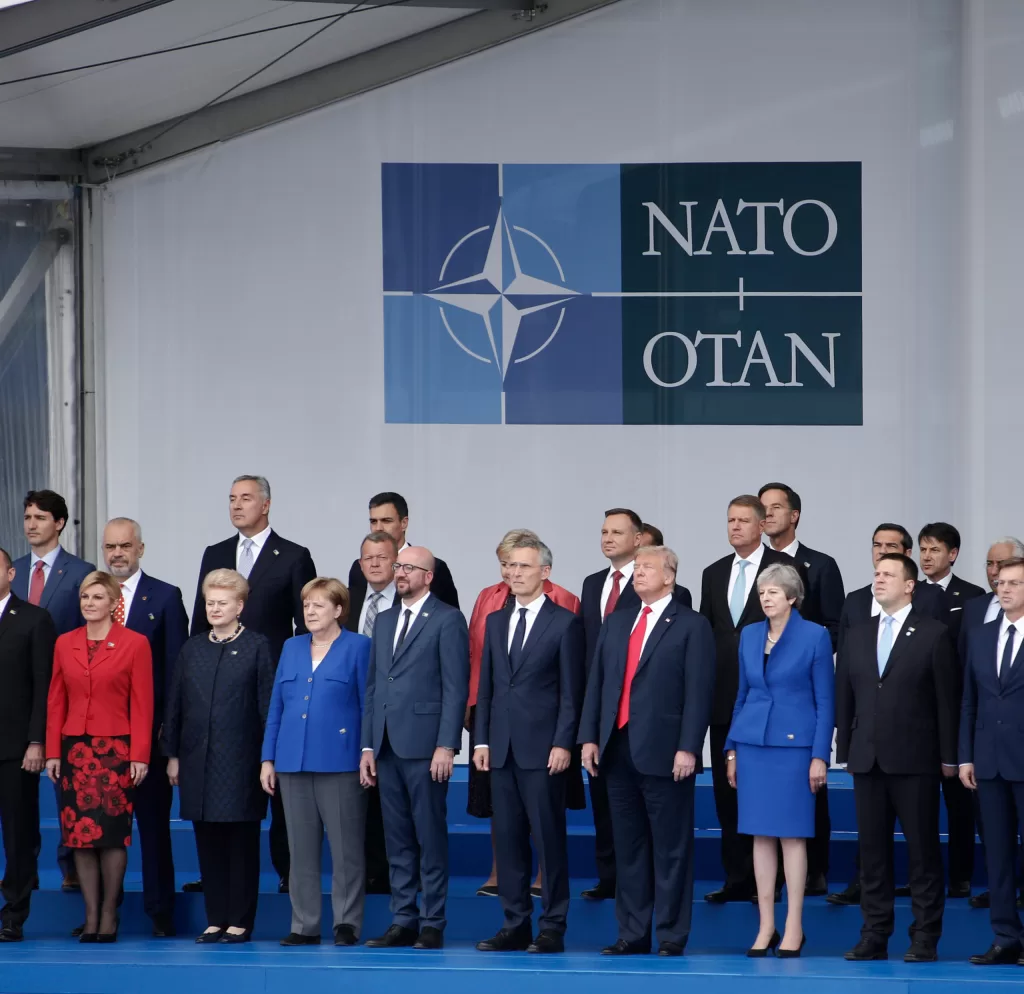
Curbing foreign intervention Pakistan being in western bloc from its creation, unfortunately has always been a soft target in terms of foreign intervention which is still present and even cultivating as time passes. The major 5 Eye embassies and high commissions in Islamabad and consulates in major cities are actively involved in unusual intervention, induction, and injection. These diplomats must respect the norms of international relations when it comes to diplomatic activities and duties. In this regard, the major responsibility goes to the government and its departments who are responsible for implementing order with regard to foreign missions. Pakistan’s national interest is to curb the extra ordinary freedom given to such diplomatic missions and make them comply with rules and regulations.
Visa requirements for Afghan Refugees The time has come to put curbs on Afghan nationals and Afghan refugees who are mostly being used as a human resource, rather human fodder for adverse activities against Pakistan. They are carrying out businesses in every big city and are grouped like small Mafias in every financial and residential district of Pakistan. They use the bribe culture to get away with their crimes and are literally abusing the Pakistani Passport and National Identity Cards. Afghan nationals own considerable real-estate in Pakistan and are also engaged in smuggling and dollar manipulation. They have B-type currency exchange companies that is one of the main sources of dollar devaluation, as dollars are being smuggled to Afghanistan via these B-type Afghan exchange dealers. Pakistan decided to send back illegal Afghan refugees and enforced strict visa regime against their illegal presence in the country and also for all illegal foreign nationals. In this regard, no entry without visa at Pak Afghan border has been fully reinforced; this is one of Pakistan’s core national interests to be able to control and regulate the Pak Afghan border to curb smuggling and other illegal activities.
Controlling Media is in the greater national interest. In normal practices, media freedom should be monitored via an effective regulatory authority yet in Pakistan, this freedom is sometimes going against the national interest of the Nation. In the western world where freedom of speech is greatly advertised, when it comes to core national interest, this freedom is curbed and no media outlet can go against the interest of the nation. Curbing the anti-state narrative on all forms of media, counter narrative groups must be created for handling any anti-Pakistan trend on social media. No harmful trend should be allowed to be transmitted/spread negative image under any external agenda. Moreover, this must be countered and close eye be kept on media anchors who may ignite the situation by frequently switching their versions. It should be noted that media groups and personnel are one of the key tools being used in such type of warfare.
A sharp awareness campaign must be initiated to let the Pakistani nation know about the lethalness of 5th generation warfare in which all forms of media have played a key role. This is the warfare that was lately used for destroying Libya, Iraq, Syria and Yemen along with some pieces taken from Yugoslavian model. In this warfare, a multi-pronged approach is used to destabilize a country with help from various forms of media, igniting regional and internal disputes, utilizing internal overt and covert proxies like Balochistan Liberation Army BLA), TTP (and religious sectarian groups etc. Having said that, however, Pakistan is the only country that defeated the 5th Gen-warfare elements and developed effective IBO procedures in this regard).
Governance A country without an effective governance mechanism cannot progress, compete and grow in the comity of nations. Pakistan, unfortunately is the victim of bad governance since its creation. In the context of Governance and Pakistan’s national interests, the three points given below are elaborated for demonstrating the criticality and relation between governance and the national interest of Pakistan.
Good Governance A Universal Imperative: Whether in developed or underdeveloped nations, the principles of good governance, including the rule of law are crucial for sustainable growth and societal well-being.
The Heartbeat of Prosperity Good governance fosters a culture of reform, accountability, and proactive decision-making, serving as the bedrock for a prosperous nation and a robust democracy.
Pakistan’s Path to Progress By prioritizing honest leadership, accountability, and effective governance structures, Pakistan can unlock its true potential and pave the way for a brighter future.
In a world marked by diverse political landscapes and varying levels of economic development, one thing remains constant: the significance of good governance in determining a nation’s prosperity. Regardless of whether a country including Pakistan, is considered developed or underdeveloped, the principles of good governance are indispensable for sustainable growth and well-being. Among these principles, the rule of law stands out as paramount.
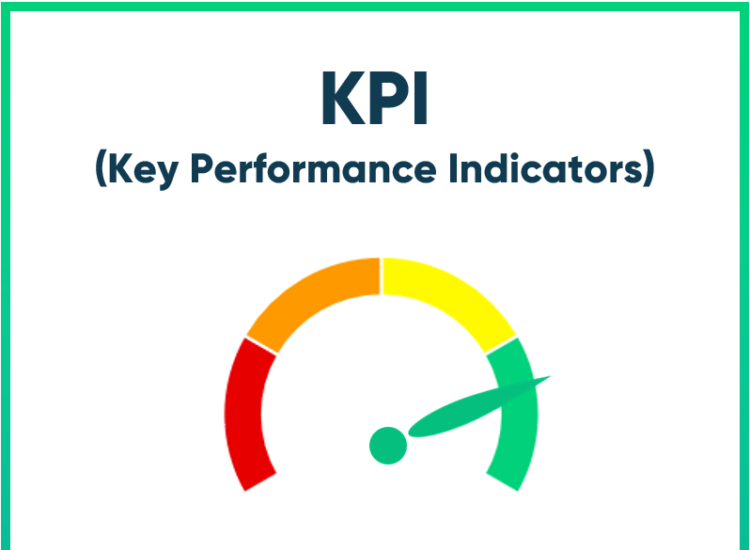
Good governance is akin to the beating heart of a prosperous nation. It fosters a culture of reform, efficient implementation, proactive decision-making, just rewards for virtuous behavior, a consistent rhythm of progress, and unwavering accountability. In countries where the model of good governance thrives, its impact on economic and social development is undeniable; it not only cultivates healthy and vocal societies but also strengthens the foundations of democracy.
Embracing the timeless adage that “Honesty is the best policy,” our primary objective is to establish an actionable governance model tailored to meet the needs of the people of Pakistan. This model aims to ensure effective governance at every level of government, from the grassroots to the highest echelons. Its applicability extends to all government institutions, their functions, and relevant stakeholders, encompassing units ranging from tehsils and districts to divisions, provinces, and the entire nation.
Within this governance model, four distinct levels—Union Council/Town Committee, District Council/Metropolitan Corporation, Provincial, and Federal—form the framework for efficient governance. Irrespective of a country’s governance structure, it invariably operates on two key models: governance and deliverance. While the deliverance model obliges the government to provide citizens with basic necessities and guarantee constitutional rights, the governance model is indispensable to ensure the seamless delivery of these fundamental needs to every citizen’s doorstep. The structure of provincial and federal governments is meticulously defined in the Constitution, but the same cannot be said for the Union and District Councils. This oversight urgently demands rectification. Without an efficient Local Government structure, the constitutional guarantees of basic necessities remain elusive for citizens.
The core of our governance model is depicted in Figure 1, comprising three essential domains: Leadership, Execution Pillars, and Enablers. Leadership characteristics are vital to this model include leading from the front, inspiring and motivating, taking initiative, fostering collaboration, promoting alignment, and building trust.
Within the Execution Pillars, key functions include the presence of honest individuals with domain expertise, inspirational and motivational leadership that leads by example, unwavering commitment, inclusivity, a clear and shared vision, units and organizations guided by Key Performance Indicators (KPIs) and SMART goals, staunch measures to prevent system leaks (such as smuggling, power theft, and tax evasion), and the introduction of a reform-oriented culture across all vital functions, including Law & Justice, Civil Service, Police, and Correctional System.
In the Enabler domain, the cornerstone elements are honest individuals with subject expertise, government support, and a shared vision that unites all stakeholders.
In conclusion, good governance is not a luxury but a necessity for any nation striving for prosperity, whether developed or underdeveloped. It is the linchpin that ensures the efficient delivery of basic necessities and constitutional rights to every citizen. To achieve this, we must prioritize the establishment of a robust governance model, addressing gaps in local government structures, and fostering a culture of honesty, accountability, and reform at every level of governance. Only then can we unlock the true potential of our nation and pave the way for a brighter future.
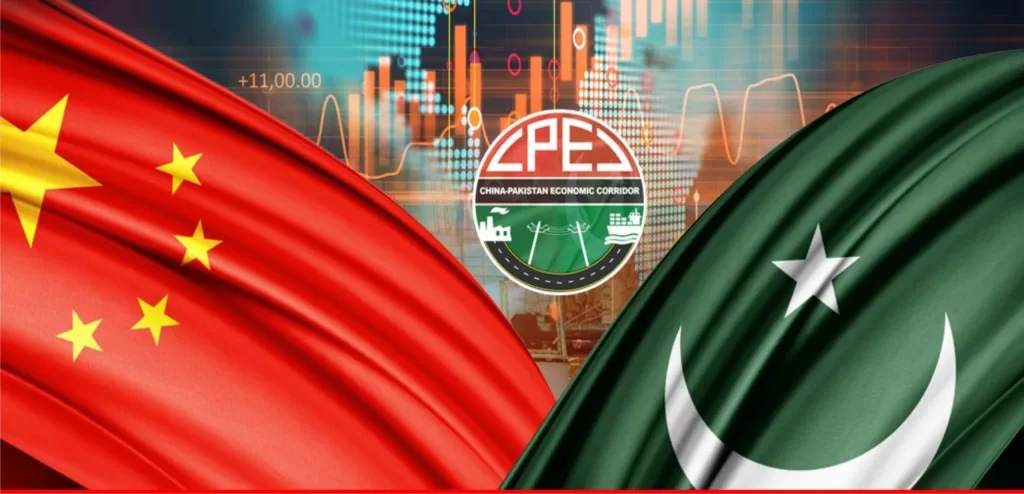
China-Pakistan Economic Corridor Pakistan is located in the area where major geo strategic transformation is taking place rapidly due to many factors involving US-India partnership in the Indian ocean region (IOR), new emerging SCO bloc, Chinese led OBOR project in which CPEC is the critical part and rapidly magnifying independence movements in India. Moreover, the ongoing rift between GCC nations is an addition to the regional complexity which has impacted heavily on the region’s inter connectivity and the foreign policy. Due to these mentioned factors, it is clear that the region in which Pakistan is located could be subject to many conflicts in the coming future due to power struggle between different power players and their subsequent economic and strategic interests. Moreover, the emergence of Indian naval alliance with Australian, US and other Pacific navies is a notable factor for Pakistan’s policy makers and it must be responded with a solid plan and role recognition. Pakistan is building a vast network of road and power infrastructure through CPEC under OBOR vision with help of China and this is of utmost important for the economy and strategic interest of Pakistan, hence this becomes the one of the vital national interests of Pakistan. Protecting this huge national interest, a reliable powerful navy is essential to sustain the uninterrupted trade activities. In order to meet with these challenges, a number of steps have been taken and there is a great sense of realization amongst the leadership to strengthen the naval power. Pakistan’s Exclusive Economic Zone (EEZ) is 240,000 Sq Km, with the continental shelf extending a further 50,000 sq km. The area is rich in fishery, possibly hydrocarbons and other seabed resources and Pakistan aspires to leverage the EEZ for socio economic development. It is therefore, in Pakistan’s interest to see that the environment at sea is secure and stable to pursue legitimate interests unimpeded. Under OBOR Vision which adds new economic and strategic dimensions to the above-mentioned challenges, the strengthening ties between Pakistan and China through CPEC is also another dimension because China wants to safeguard its oil supply from the Middle East that was passing mainly through Strait of Malacca which is mainly under Allied influence and can come under naval blockade in case of any high-level tensions between US and China. So the geo political importance of CPEC is a critical factor for future Chinese engagement with Maritime security in the Arabian Sea and Indian Ocean along with Pakistan Navy.
Pakistan’s National interest Compliance and Challenges
Pakistan certainly has few institutions that continuously study, monitor, and watch the national interest of Pakistan when the utmost need arrived. In this regard, some examples can be quoted where national interest was exhibited and demonstrated in its full essence.
• Pakistan didn’t involve itself in the 2015 Saudi-Yemen war, hence serving its national interest
• Pakistan’s refusal in 2024 Maritime collation against Yemen, served its national interest.
• Pakistan’s nuclear program and the 1998 nuclear explosion were in its national interest.
• Fighting terrorism and creating National Action Plan was in the core national interest.
• Strike back at Iran on 18 Jan 2024 is the national interest.
• National image perception and image building is the national interest.
• Protecting national assets and national symbols is the national interest of the nation. In this regard, the 9th May perpetrators must be punished in the Grand National interest. The attacks on military cantonments are the core treason.
The main challenge comes when Pakistan must choose between commercial interest and the image or perception of the nation. For instance, if a fugitive is wanted and the host country is refusing to return him and threatens to cut diplomatic ties with cancellation of GSP + status, then it will be a leadership decision on what to choose. Commercial and diaspora related interests are limiting factors when it comes to bargain with developed nations.
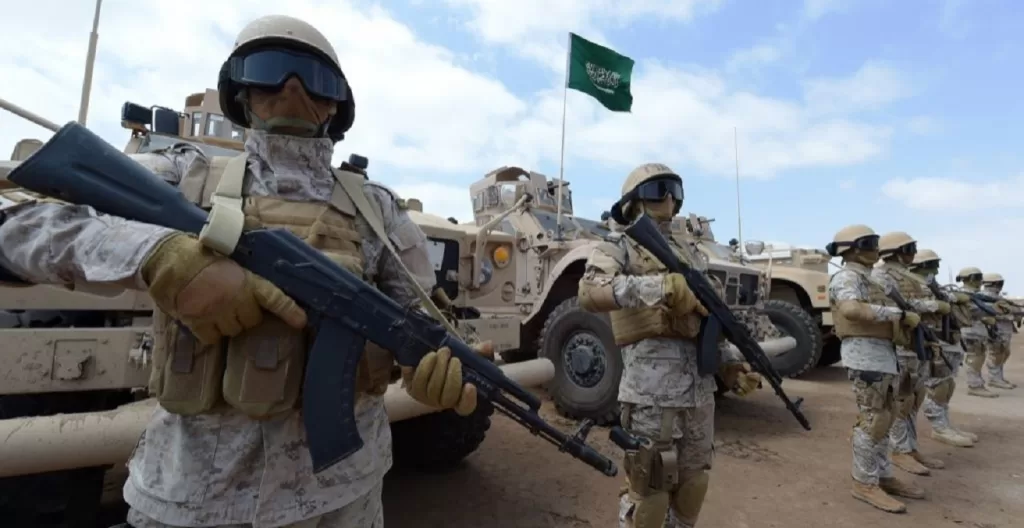
Conclusion
Defining the core national interest is in the greater benefit of the nations. What happens if nations don’t define the national interest displaying lack of will, the ultimate consequences may include highly confused government functions, degraded performance, compromise on sovereignty, lower status in comity of nations, and internal/external Vulnerability. In Pakistan’s context, the continuity of Pakistan vital life line in terms of water and food security, securing land and sea trade routes, local manufacturing, Local Body government system, effective governance, finding alternative banking channels, diaspora placements, and balance in pole politics are the key ingredients of its national interest. In Pakistan, the ultimate national interest is to respect the Constitution of Pakistan and each function within the state must work as per defined parameters. In this way the final goal for a democratic and prosperous Pakistan will be achievable.
Externally, being Pakistan a nuclear nation with huge resources, a strong military industrial complex and vital natural resources, Pakistan must stretch its naval domain of interest from the Arabian Sea, IOR, Red Sea, Mediterranean and the Black Sea. Reiterating again, the National Interest of a nation is directly proportional to the size and stature of that country. A country with huge resources, population and economic viability must stretch its interests. Because these ingredients dictate that the country stretches and flex its muscles to get its right status and share in this dangerous power pole world.
Legal Disclaimer:
*The author reserves all rights for the intellectual property of his work. Any permission to produce or reproduce, print, or publish the work is with specific consent, and explicit permission only. No reproduction or IP rights are sub-assigned.


